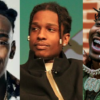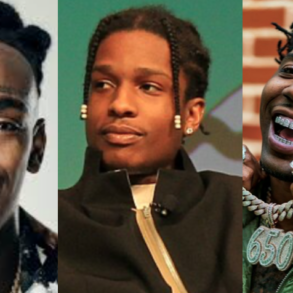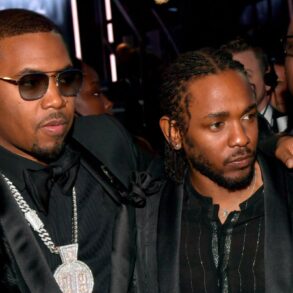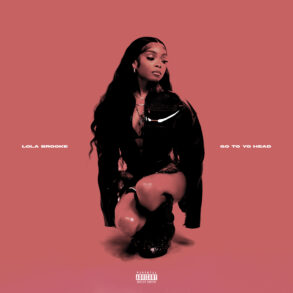The conversation of whether modern hip-hop journalism has significance continues to spiral on social media. As if the media landscape needed a reminder that it is rapidly disintegrating (see waves of journalism layoffs and record company restructurings), rappers and hip-hop music executives have begun doubling down on culture writers struggling to survive the times.
Earlier this month, independent rapper Russ aired his grievances with hip-hop journalism, suggesting that music critics launch their own video platforms to maintain relevance. But rather than encouraging his fans to read when literacy rates are worsening, Russ dismissed music publications with a “nobody cares about reading interviews” assumption and that “videos are king.” While understandable, this take is dangerous when some TikTokers and content creators don’t have the credentials to be respected music pundits. They often use artist interviews to talk about everything but their music.
Russ’ tirade began to flood the channels of reputable hip-hop reporters, namely, Black women, who fired back while the rapper fought to put them in their place. Aside from what seems to be glaring misogynoir, music journalists greatly deserved protection in a moment where they were wrongly being called out. When Russ brushed off “reading interviews” as extraneous, he meant that the written word was no longer respected. Although right to an extent, this shouldn’t be law; some music websites still hold down the fort, even relaunching. But this hasn’t stopped other notable hip-hop figures from hopping into the dialogue with criticism for the critics.
Harper’s Bazaar recently published a Kendrick Lamar interview conducted by SZA, where the frequent collaborators discussed musings on spirituality, childhood origins, and musicality. It’s obvious that the artists are comfortable chatting with each other, but when some voiced frustration that a journalist didn’t interview Kendrick, Top Dawg Entertainment President and SZA’s manager, Terrence ‘Punch’ Henderson Jr., shaded them. He says most hip-hop journalists are “trash,” so artists evade interactions. Punch later admitted that journalism is “needed and pushes the culture forward,” but continued to stand beside his original “trash” assessment, not clarifying his distaste for the field. But are legitimate reporters genuinely “trash,” or are their questions and thoughtful reviews just too confrontational for rappers to face?
What’s the barometer for quality to “trash” hip-hop journos when contemporary rappers have adopted the streamer circuit for their album promotion? With the exception of cover stories for legacy publications like Vogue, Variety, and Vibe, rappers like Nicki Minaj, Offset, and GloRilla amuse internet personalities like Funny Marco, Kai Cenat, and WNBA phenom/podcaster Angel Reese. However, respectfully, these entertainers are merely lampoons of actual reporters. Controversial to some is also when those otherwise known as hip-hop talking heads, like Charlamagne Tha God and Adin Ross, are too closely aligned with politics. However, they don’t have the social science background to engage presidential candidates properly. Ironically, as we inch closer to the election, hip-hop journalism remains vilified and targeted as a source of disinformation, which is likely why verifiable critics are being loopholed with music spaces that regurgitate fake news.
Some hip-hop listeners have become so acquainted with aggressively stanning their favorite artists that any journalistic criticism or interview pushback is deemed offensive. This wasn’t always the case; veteran pop culture reporter and editor Danyel Smith dissected the child sex abuse allegations (now truths) about R. Kelly in the 1990s; late critic Greg Tate was esteemed for his challenging meditations about the genre; journalist and author Kevin Powell intimately gave voice to groundbreaking artists who’ve since been immortalized.
The first wave of hip-hop magazines has perished, and its decline also brought some casualties. The 1992 L.A. Riots, which some rappers commentated on in their music, broiled over into a lasting grudge between the police and marginalized communities. The instigation of the mid-90s East-West Coast war arguably caused the devastating losses of 2Pac and The Notorious B.I.G. Female hip-hop journalists have gone on record to share how unsafe they’ve felt in office environments. But if history has taught us anything, it’s to be more responsible with our platforms.
The conversation about hip-hop journalism ethics has gotten monotonous when readers who demand strong reporting can simply do their research on writers who fit the paragon of music criticism. These writers are already in an existential crisis about the industry’s obsolescence. If we want hip-hop to last, it begins with trusting those dedicated to covering the culture with intention.
This post was originally published on this site be sure to check out more of their content.








